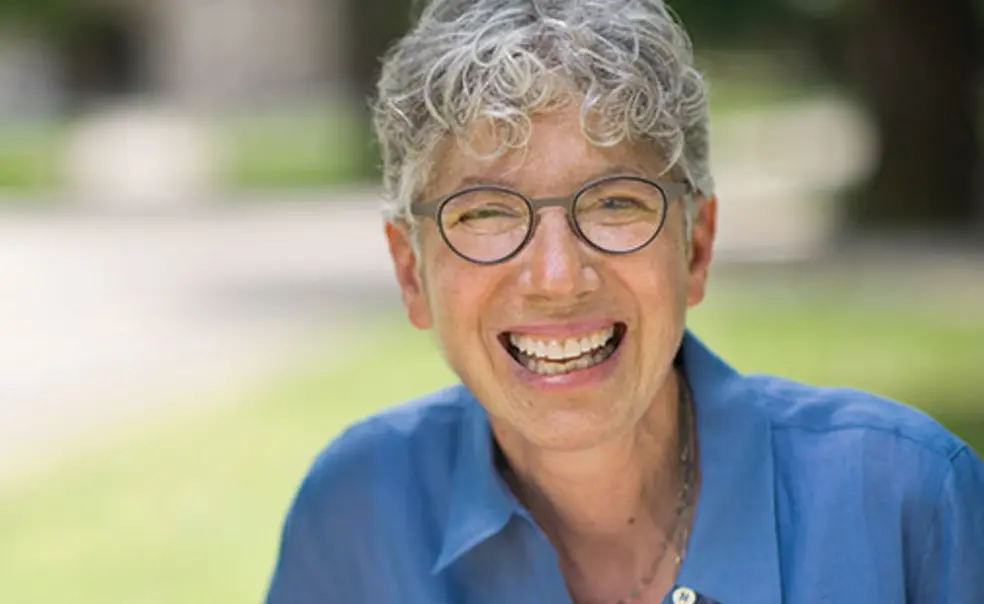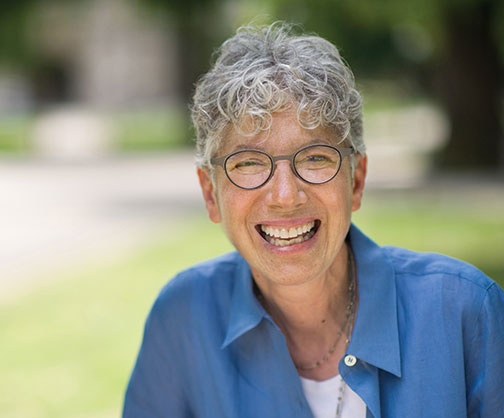Q&A: Jill Dolan
Tough to Get an A: New dean of the college on grading, proposed changes in the curriculum
Jill Dolan, Princeton’s new dean of the college, is many things — among them, feminist, blogger, and an expert on women’s and LGBT theater, performance, and popular culture. On campus, she’s probably best known as a professor of English and theater and as the former director of the Program in Gender and Sexuality Studies. Dolan spoke to PAW about issues that fall into her new role as dean the week after fall classes began.
The average GPA rose slightly across courses in all disciplines after the new grading policy was adopted a year ago [see story, page 13]. What does this say about the new policy’s impact?
I think it’s hard to generalize on the basis of one year of data. But the most important thing for me is that grading is something that we take seriously as a University and that we work with departments and programs in the context of their own cultures to figure out how they’re spelling out expectations for students.
What has been the effect on students? Are they becoming less competitive and more collaborative?
I think the [old] grading policy created some anxiety that I hope is slightly alleviated. But nonetheless, assessment is something that always makes people nervous, and rightly so, because we do it in a very rigorous way here. And it should be difficult to get an A.
There’s been discussion about whether Princeton should enroll more students and perhaps accept transfer students. What do you think?
I think that President Eisgruber is very keen to have as many students as we can manage take advantage of a Princeton education. And whether that’s through reinstating the transfer program or increasing the size of the student class — there are lots of ways that we could do this.
President Eisgruber has spoken about the importance of community service for Princeton students. What role should service play in the curriculum?
We have an opportunity to make a mark in this field by making this a curricular initiative and seeing how people across all four divisions of the University think about service learning as something they can make part of students’ coursework. I really hope we can expand how we knit service into curricular initiatives.
A task force is reviewing the University’s distribution requirements. What are some of the areas that may be looked at?
We’ve been charged to consider whether there should be a diversity requirement, whether or not there should be a computer science requirement, what should we do about language requirements, as well as [other] things. What about service? What about community engagement? What about entrepreneurship? There’s a host of initiatives that the University is embarking upon now that have some relation to the general-education requirements.
There has been discussion of a larger role for Asian American studies — do you anticipate any action in the coming year?
There’s a lot of energy around Asian American studies, gender and sexuality studies, American studies, Latino/Latina studies, and African American studies as interdisciplinary fields that can move forward together. There’s a lot of eagerness to really get them underway.
Given your new duties, how important is it to you to continue your blog, The Feminist Spectator (feministspectator.princeton.edu)?
Blogging is an aspect of my life that I really wouldn’t want to give up. One of the pleasures of writing that blog is that it exercises a different part of my brain and it lets me engage with the culture that I consume on a regular basis in an active and thoughtful way.
Interview conducted and condensed by A.W.













No responses yet